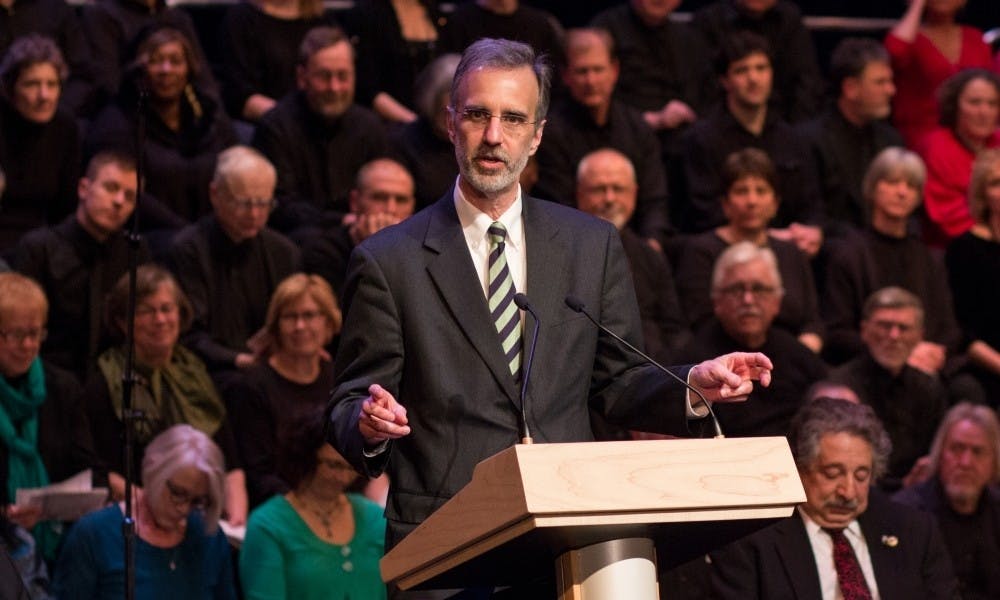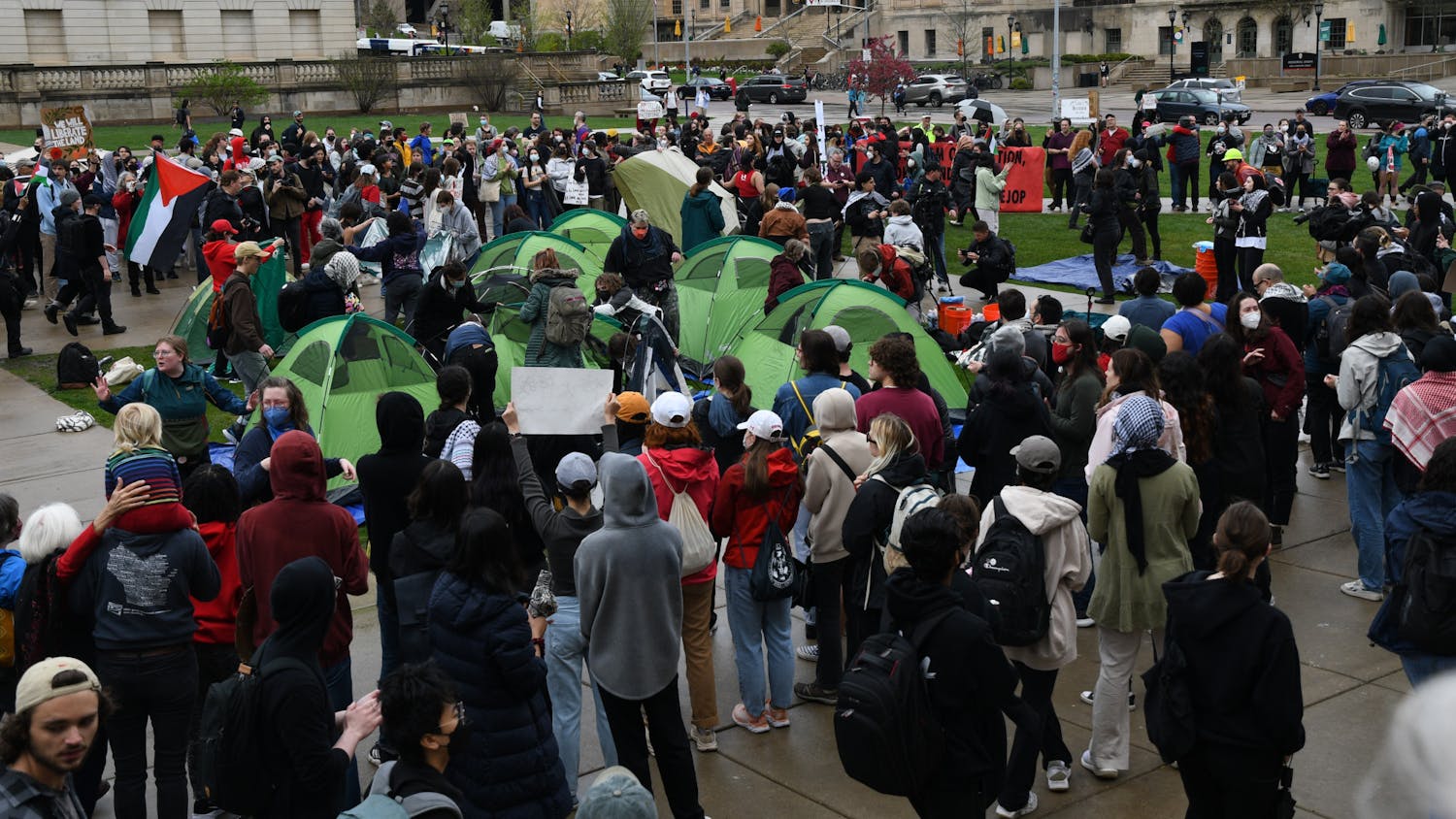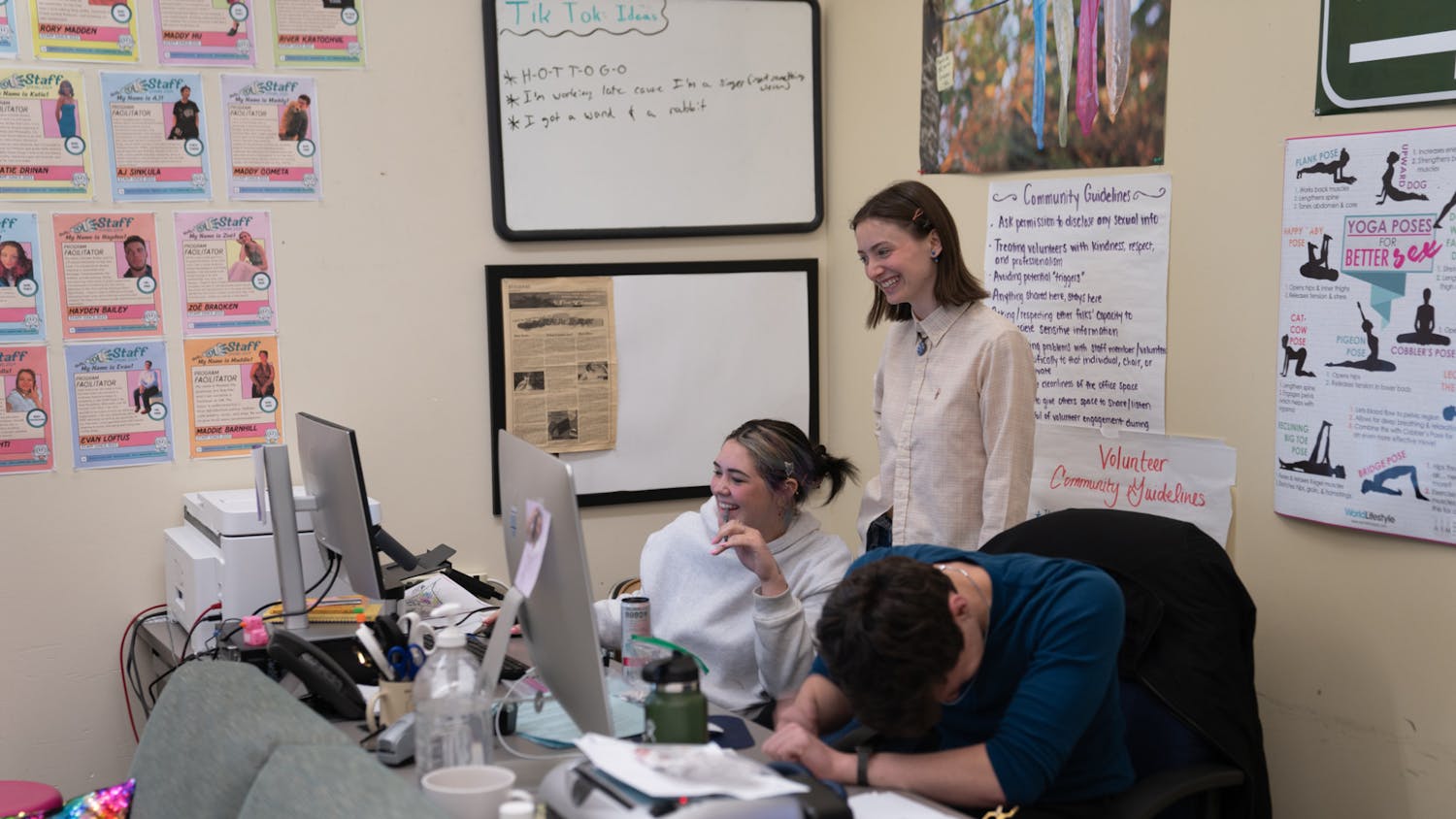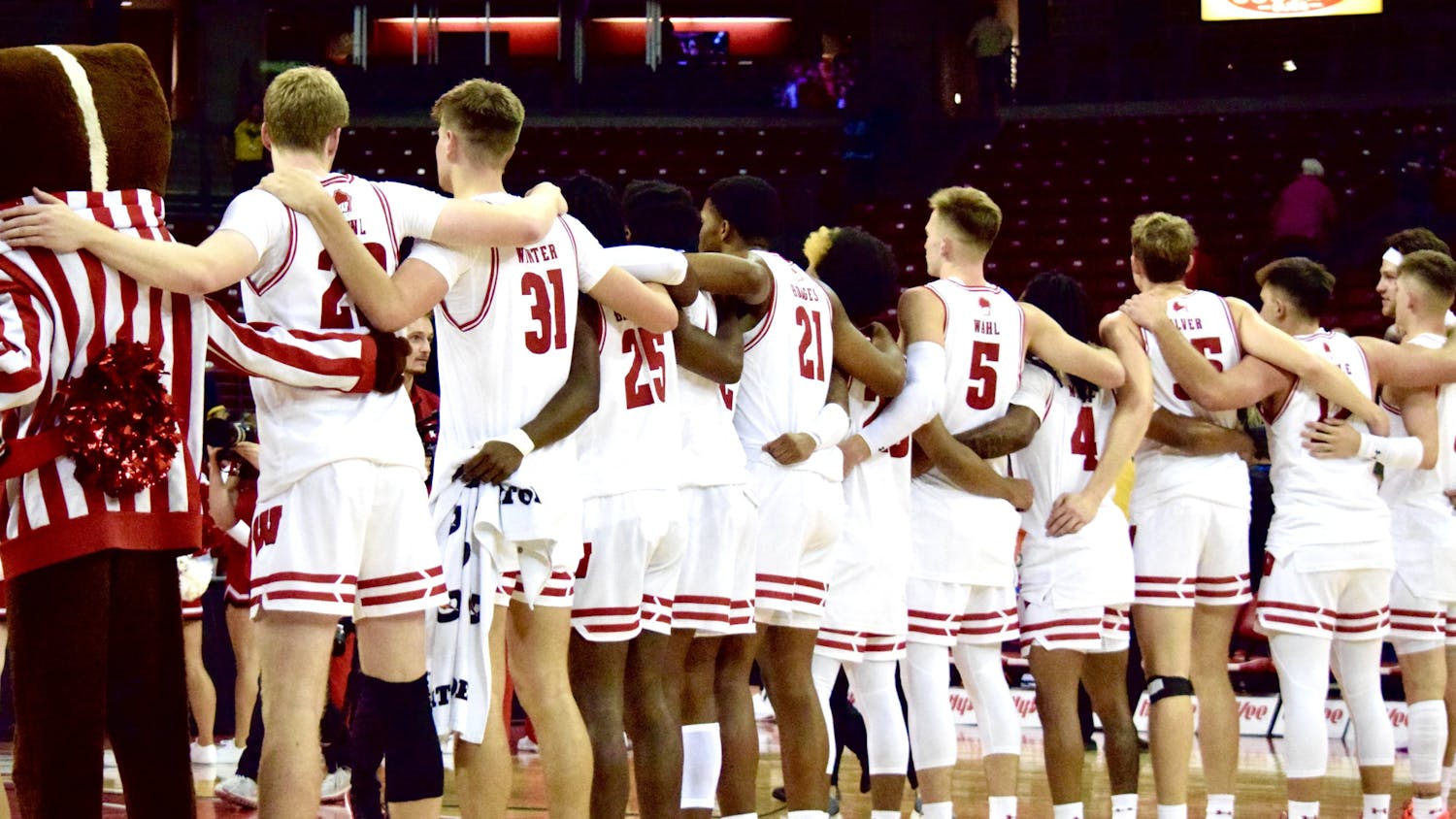Dane County Executive Joe Parisi announced he would retire on May 3 after more than a decade as head of the county government.
Parisi, elected county executive in 2011, previously served as a member of the Wisconsin State Assembly representing the Madison area. He said his retirement next month comes at a “logical time” in his personal and professional life.
“I reached a point in my career where I felt like I've accomplished pretty much everything I had wanted to accomplish, which is something I'm incredibly grateful for, and it just seemed like a good time to take that step,” Parisi said.
Parisi sat down with The Daily Cardinal to discuss his policy accomplishments as county executive, his work with students and what initiatives he wants to see his successor continue.
This interview has been edited for length and clarity.
What are some of the things that you most wanted to accomplish during that time as county executive, and what have you been able to do?
I'm passionate about a lot of different issues, and in a job like this, you can address so many different areas. We — I like to say “we” because it hasn't just been me, it's been a team of county employees and people in the community — have a lot of work done in the area of mental health. We've been able to create mental health teams, putting mental health teams in every school district in the county. We've invested a lot into expanding resources for folks. We've done a lot in the area of homelessness and food insecurity.
One of my biggest passions is environmental protection and climate change in particular, and we've really become national leaders in this area. This year, we became only the — well, actually it was last year now because we're in 2024 — fourth county government in the nation to offset 100% of the electricity we use with renewable electricity. And we're on our way to being carbon-neutral by 2030.
It's just incredibly satisfying for me. We've been able to have a lot of really important accomplishments, but there's also the infrastructure in place and momentum that this work is going to continue long after I’m gone.
You focused a lot on transitioning the county to clean energy. What are the big accomplishments that you've been working toward, and what work is there still to be done?
First, we invested a couple million dollars every year in energy efficiency, which is where you start when you're doing this work. And then we started assessing all of our properties, all of our buildings for the ability to accept solar. Right now, I think we're up to 17 or 18 solar installations, everything from installations on roofs to a couple of larger solar fields. That really got us across the finish line with 100% offset and is saving the county taxpayers a lot of money.
But in some ways, offsetting electricity use was the low-hanging fruit. If we want to be carbon-neutral, there's more to that than just electricity. We have buildings; we have vehicles. We invested a few years back in a facility at our landfill that allows us to extract the methane gas that our landfill generates, and we take it, clean it, compress it and use it for transportation fuel, and that's up to 400% cleaner than fossil fuel. We fuel about 100 of our own vehicles with that, and then we sell the remainder into the interstate natural gas pipeline. It will offset greenhouse gas emissions and earn a lot of money from those sales.
Our final piece — and this is the one of the pieces that will live on — is our work toward being carbon-neutral. The very last piece of it is carbon sequestration, so we're working with our Land & Water Resources Department. We're working on prairie restorations, wetland restorations, land acquisitions and restoring degraded land. It has many environmental benefits, but it will absorb carbon.
What do you hope to see a future county executive do when they take the reins on climate policy in the county?
Now that we've done this and become national leaders, we want to share our knowledge and our know-how to help others do the same. We have coalitions with local governments. We're reaching out to governments across the state, across the nation. We give tours of our landfills so they can see our landfill gas extraction. We want to help others lead, so I hope that that can continue.
You also had to navigate the COVID-19 pandemic in Dane County. What did you do to help mitigate that, and what is the county still doing to protect against COVID?
It was definitely 24/7 for months upon months. There were different stages of the pandemic. Initially, it was trying to figure out along with everyone else what was going on with this virus. There was navigating shutdowns of facilities, there were getting masks and information out into the community, especially in communities that were a little more vulnerable, making sure people had access to personal protection. In addition to actually dealing with the disease itself, we were very involved in dealing with the fallout — people losing their jobs, supply chains going down.
First of all, we created a grant program for local small businesses because, as everyone recalls, everything shut down, and our local small businesses were particularly vulnerable to the shutdowns because nothing was coming in, and they still had bills to pay. So we created a grant program in partnership with Dane Buy Local and got grants out to small businesses.
We created a program that would be called Farm to Food Bank. This was in partnership with local farmers, local growers and Second Harvest Food Bank. Through this program, we channeled a million dollars of federal relief money to Second Harvest Food Bank in partnership with our local farmers and growers to buy food directly from them. What this did was put food on the table for people to eat healthier local foods — a lot more local food in pantries — and it provided a lifeline to a lot of growers and farmers whose markets collapsed because of the pandemic.
That was a very effective program and a program that's still going today, redefining the model for a lot of food banks. It's better for the local economy, it's more resilient, and you get fresher and often better food for the people who need it.
As some federal pandemic-era nutrition assistance programs have either shrunk or expired, how important will county-level food initiatives be going forward?
It's gonna be really important. One of the things we've learned during the pandemic is there are solutions for many challenges that seemed intractable in everyday life before the pandemic. We found that if the federal government gave us the resources locally, we knew what to do with them to help people when they were in need. We saw this in housing, where we were able to take tens of millions of dollars of federal emergency aid and put it into local rental assistance during the pandemic. While other parts of the country saw skyrocketing evictions and challenges, we actually saw our eviction rates lower sometimes than pre-pandemic.
The county recently broke ground on the Dane County Jail project. That's been in the works for 20 years at this point. How did you help get it over the finish line this time, and why was it delayed for so long?
A number of factors were in play. First of all, building a facility like that is extremely expensive, and no one really runs for office because they want to build a jail, right? There's so many needs in the community, but unfortunately, this facility is such a dangerous place in its condition. It needs to be done.
Now, the county is also heavily engaged in reintegration and diversion programs — programs to help people who have offended and to divert people from the criminal justice system. I think with some folks there was a misunderstanding that they felt we were investing in replacing the jail with a newer facility, that it meant we weren't investing in rehabilitation and diversion and helping address the root cause of crime.
It finally just got to a place where people on all sides of the issue saw we're investing in helping people and the root cause of crime, and this facility is actually part of that because it will allow for more restorative activities to take place in the jail. It will eliminate solitary confinement, it will provide a safer and humane environment for people. But at the end of the day, it's a lot of money, and the pandemic made it even more challenging. As we all know, the cost skyrocketed during and after the pandemic.
So it's about having to approve more and more money for it because costs are so high and construction costs are getting affected by supply chains?
Yeah, and ironically, that may have finally been what got it across the finish line because people realized this is not gonna get any less expensive. It's already too expensive. We just have to get it done now and get it behind us.
What is the county doing in terms of reform or making sure there are rehabilitation programs available?
We have reentry teams in the jail, and we work with organizations that have teams outside of the jail. One of the challenges for the county that I think people may not always fully grasp is that the county government is tasked with running the jail, but we don't control who gets brought to the jail. People get brought to the jail from local police forces or state police. So we have to accept whoever law enforcement brings to us.
We do what we can, for example, in the court system, by investing in mental health resources to help people and to help divert people. We partnered with the city on their CARES teams to help people with mental health challenges be diverted and get the proper treatment and resources that’s appropriate for what's going on with them. And we've had to work across jurisdictions and work with community members, different law enforcement [and] judges.
When we've had outside consultants come in and look at the work we do in Dane County, they've all been in agreement that we're way ahead of the pack when it comes to diversion and rehabilitation. What they found is the more we asked how we can decrease our jail population, they were like, “You've done the low- and the medium-hanging fruit.” We can continue to work on it, and we should. We're doing a good job as far as what's under our control. We can't do anything about mandatory minimums, about state policy, federal policy, but we can do what we can to help people address the root causes of what got them there in the first place.
In general, is there any area or opportunity you feel was missed or incomplete during your tenure? How do you hope the next county executive can address that?
I don't really look back with any regrets or think, “I wish I could have got this done or that done.” I feel really excited about the climate work that we were able to do, but when we talk about any issues county government deals with — climate, transportation, mental health, criminal justice reform — it's all really a process. You never really get there, wherever “there” is, so it requires constant vigilance.
I think what's important is that we have systems and infrastructure in place that continue to address the needs that exist and be mindful of the fact these needs are going to evolve. The situation changes, especially when you live in a community that's growing as quickly as ours.
UW-Madison and other colleges comprise a big part of the county. How have you worked with students or on issues that particularly affect students during your tenure?
One of the things I've tried to do with students is engage in classrooms. I usually give a couple of guest lectures per semester in various departments, often in environmental studies talking about climate, sometimes in other areas.
I'll focus on climate since that's kind of a theme. Your generation is facing an enormous challenge, and you deserve to have people who are current decision makers and who are working on these issues interacting with you and getting your input, making sure you know what we're up to.
I leave classes I speak with feeling incredibly optimistic and invigorated because I'm able to share with young people their passion for this issue and the practical solutions that we've initiated in county government. Sometimes this issue can feel so overwhelming, and people are like, “Oh my god, the world is basically on fire. How can I as one person do anything about that?” The good news is there's a lot people can do, and so I think it's important folks like myself make ourselves accessible to young people, to partner with them on their journey.
How do you want your successor to keep working with students and young people going forward?
We do what we do for you. I'm not 100 years old, but I had a great, productive life, and I've had wonderful opportunities, and I haven't always had to look over my shoulder and worry about, “Is Canada going to be on fire today? Am I gonna be able to breathe because it's so smoky out?” That's not fair. It's not fair to you, and I think my generation and people in positions of relative influence like myself owe it to your generation to do everything we can to empower you to be able to have the lives you deserve to live. I don't think it's too late for that, but you’re why we do what we do.
Francesca Pica is the city news editor emeritus for The Daily Cardinal. She has covered multiple municipal elections and is a leading reporter on Madison labor issues. Additionally, she served as a summer intern for The Capital Times and currently serves as a WisPolitics intern.






